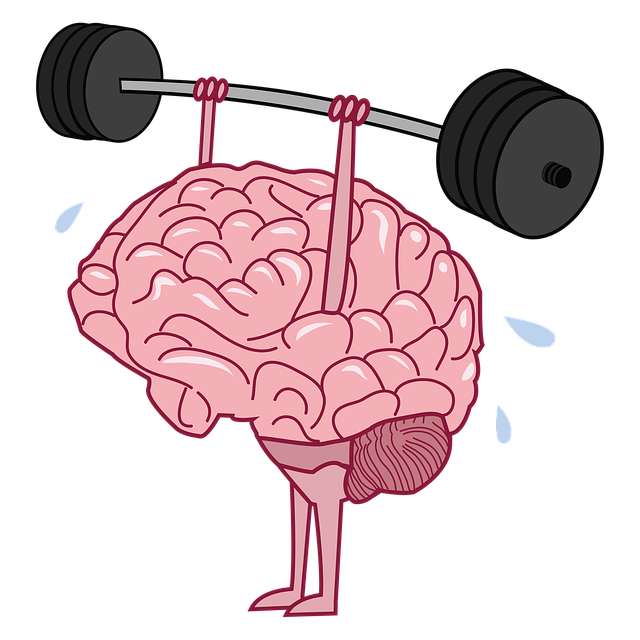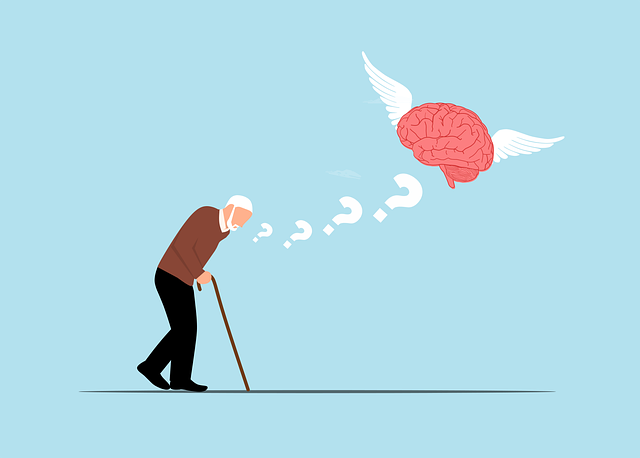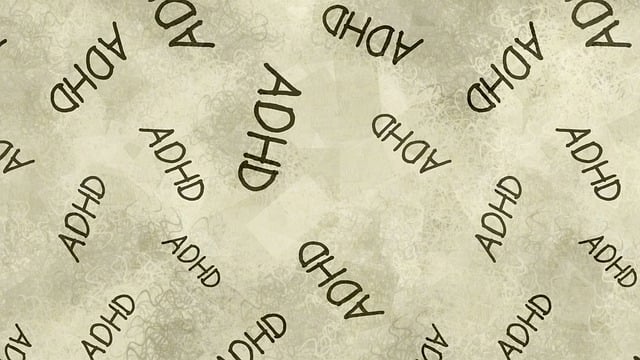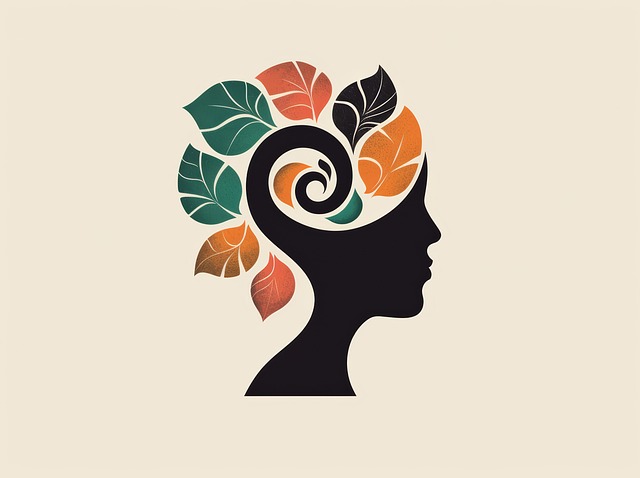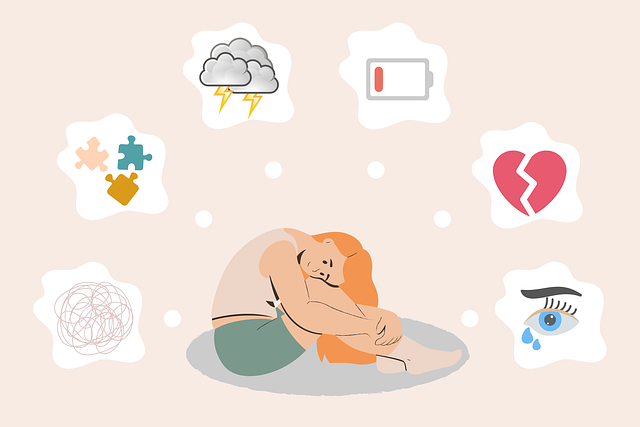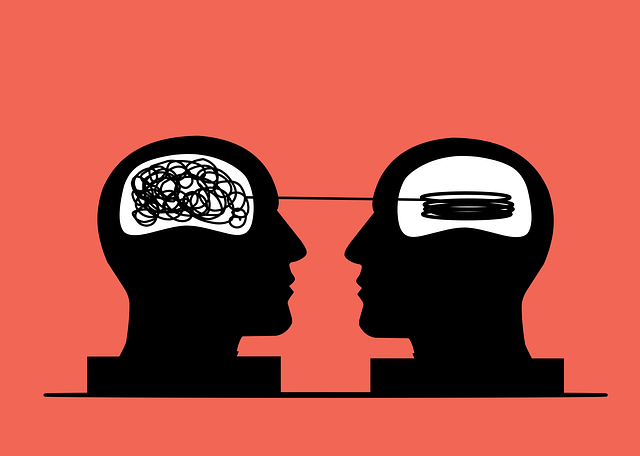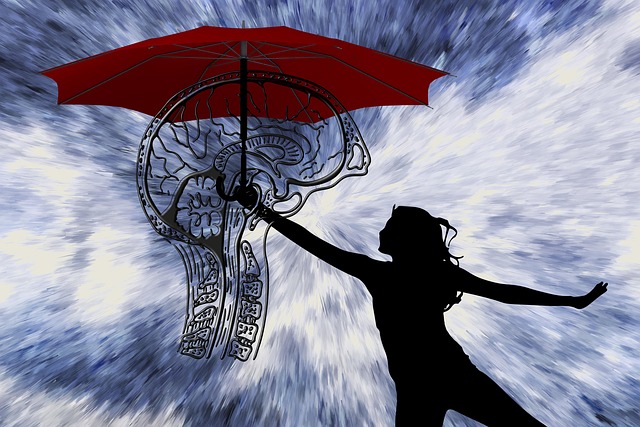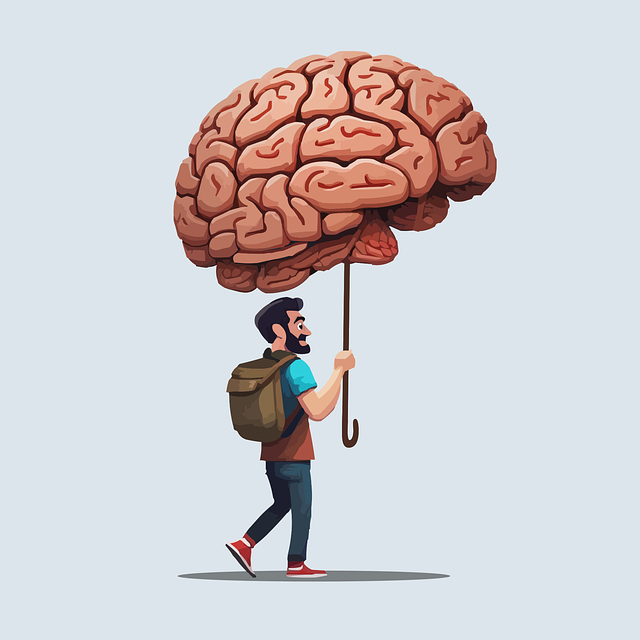Wheat Ridge Depression Therapy leverages evidence-based strategies like CBT, mindfulness meditation, workshops, and lifestyle changes (e.g., diet, exercise, sleep) to empower individuals in mood regulation and emotional well-being improvement. Public Awareness Campaigns contribute by normalizing mental health discussions, reducing stigma, and encouraging early support-seeking. These integrated approaches ultimately enhance overall mental wellness and prevent burnout.
In today’s fast-paced world, managing moods is crucial for overall well-being. This comprehensive guide explores effective mood regulation strategies backed by scientific research. We delve into understanding the impact of mood on mental health and introduce powerful tools like Cognitive Behavioral Therapy (CBT), mindfulness techniques, and lifestyle changes focused on nutrition, exercise, and sleep. Discover how these approaches can help navigate and overcome depression, a common challenge often addressed through Wheat Ridge Depression Therapy.
- Understanding Mood Regulation and Its Impact on Well-being
- Cognitive Behavioral Therapy (CBT): A Powerful Tool for Mood Management
- Mindfulness and Meditation Techniques to Calm the Mind
- Lifestyle Changes: Nutrition, Exercise, and Sleep for Improved Mood Stability
Understanding Mood Regulation and Its Impact on Well-being

Understanding Mood Regulation is pivotal to enhancing well-being and overall quality of life. It involves managing and stabilizing emotions, ensuring individuals can navigate life’s challenges with resilience and equilibrium. Mood disorders, such as depression, significantly impact daily functioning, affecting work performance, relationships, and personal happiness. Thus, effective mood regulation strategies are essential tools in promoting emotional well-being.
Wheat Ridge Depression Therapy offers valuable insights into this domain, focusing on therapeutic approaches like Mindfulness Meditation to foster self-awareness and emotional control. Public Awareness Campaigns Development plays a crucial role in normalizing conversations around mental health, reducing stigma, and encouraging individuals to seek support when needed. By combining these strategies with Emotional Well-being Promotion Techniques, people can develop robust coping mechanisms, enhancing their ability to manage and improve their mood over time.
Cognitive Behavioral Therapy (CBT): A Powerful Tool for Mood Management

Cognitive Behavioral Therapy (CBT) stands as a powerful tool in the arsenal of mood regulation strategies, offering effective treatment for various mental health conditions, including Wheat Ridge depression. This therapeutic approach focuses on identifying and modifying negative thought patterns and behaviors that contribute to emotional distress. By challenging distorted cognitions and replacing them with more realistic and balanced perspectives, CBT empowers individuals to manage their moods proactively.
Through structured sessions, clients learn crisis intervention guidance tailored to their unique struggles. They acquire valuable coping mechanisms such as mindfulness meditation techniques, which have been proven to reduce stress levels and enhance emotional well-being. Additionally, participating in Stress Management Workshops Organization can provide practical tools for navigating challenging situations and promoting a sense of calm. CBT’s ability to equip individuals with lifelong skills makes it an invaluable resource for those seeking long-term mood regulation and improved quality of life.
Mindfulness and Meditation Techniques to Calm the Mind

In today’s fast-paced world, managing one’s mood and mental health is more crucial than ever. Wheat Ridge Depression Therapy offers powerful tools like mindfulness and meditation to help individuals calm their minds and cultivate emotional resilience. These practices, integral to coping skills development, allow people to become more attuned to their thoughts and feelings without judgment. By integrating mindfulness into daily routines, individuals can enhance their emotional intelligence, enabling them to navigate life’s challenges with greater equanimity.
Meditation techniques, in particular, have been shown to reduce stress and anxiety, two common contributors to wheat ridge depression therapy. Regular practice promotes self-care routine development for better mental health by encouraging a sense of inner peace and clarity. Ultimately, these mindfulness practices are not just about quieting the mind but also about fostering a deeper understanding and acceptance of one’s emotions, leading to improved overall well-being.
Lifestyle Changes: Nutrition, Exercise, and Sleep for Improved Mood Stability

In the pursuit of improved mood stability, lifestyle changes are powerful tools often overlooked. Nutrition plays a significant role in mental health; incorporating nutrient-rich foods like omega-3 fatty acids and B vitamins can help regulate mood. Studies have shown that regular physical activity, whether it’s a brisk walk or intense workout, releases endorphins that boost happiness and reduce stress. Adequate sleep is equally vital; aiming for 7-9 hours each night allows the brain to rest and recover, preventing emotional swings. These simple yet effective strategies, when incorporated into daily routines, can significantly impact overall mental wellness, serving as valuable burnout prevention strategies for healthcare providers and individuals seeking Wheat Ridge depression therapy while fostering development of a robust self-care routine for better mental health.
In navigating the complexities of mood regulation, individuals can significantly enhance their well-being through evidence-based strategies. Cognitive Behavioral Therapy (CBT) offers a powerful framework for managing emotions and thoughts, while mindfulness practices promote mental calmness. Lifestyle adjustments, including nutritious diets, regular exercise, and adequate sleep, play a pivotal role in stabilizing moods. By combining these techniques, folks can foster resilience against Wheat Ridge depression therapy challenges and cultivate a more balanced emotional state.

